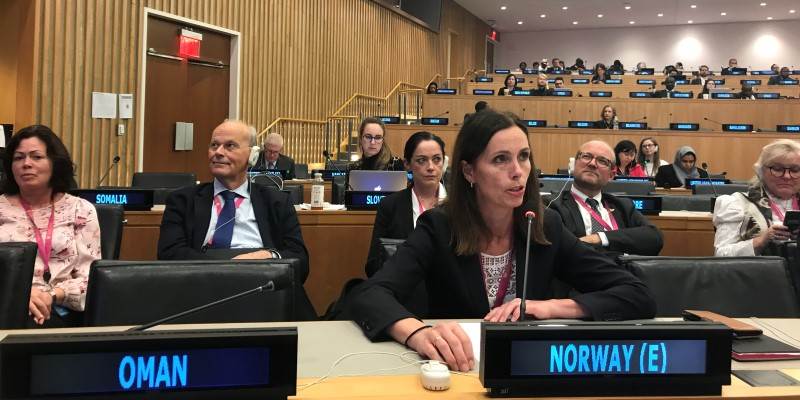Chair,
Allow me to begin by thanking you for inviting us here today to this important discussion.
Ensuring the health of the planet remains essential to achieving the Goals. Loss of nature drives climate change, biodiversity collapse and poverty. It threatens our health, livelihoods, culture and security.
A key message that might seem obvious, but is critical, is that we need more nature – not less.
This means that first and foremost we need to protect remaining ecosystems. Like tropical rainforests that provide vital services like clean water and the regulation of regional rainfall patterns.
Stopping loss of nature, and protecting and restoring natural ecosystems, is vital to reach our global goals.
But we need to be informed on what to do and how. I would therefore like to draw your attention to two recent and important reports:
First, the Global Consultation Report by the Food and Land Use Coalition.
Paradoxically, our food production is destroying the ecosystems we depend on. But we do have a choice. The report outlines ten critical transitions we need to act on to protect the planet and people – in an economically sustainable way:
We must produce enough healthy food on less land. This requires Governments to regulate and promote change through investments in people centric, deforestation-free supply chains; creating a better deal for smallholders; and supporting developing countries to protect their forests.
Sustainable use of oceans is another key: more food needs to be harvested from our oceans in a sustainable way.
Diets also play a large part. Healthier food is better for both us and the planet. And we must waste less.
Done right, a transition could create better rural jobs, and protect us from trillions of dollars in costs from catastrophic climate change, natural disasters, and health bills.
Second, the High-Level Panel for a Sustainable Ocean Economy has concluded in a recent research study that ocean-based climate action has the potential to reduce the emissions gap by up to 20 percent in 2050. These numbers are striking.
At the Climate Action Summit, the Panel launched an ambitious call for actors globally to join in accelerating progress on a number of key ocean-based climate actions.
Among them are investment in nature-based climate solutions. Such as:
Scaling up offshore and ocean-based renewable energy;
Supporting rapid decarbonization of ocean industries;
Promoting sustainable sources of food from the ocean;
Advancing the deployment of carbon capture and storage below the seabed, and;
Scaling up support for integrated ocean observation and research.
Sustainable ocean-based economy has an essential role to play in much-needed emissions reductions. While also providing jobs, supporting food security, sustaining biological diversity and enhancing resilience.
Norway is – and remains – committed to supporting nature-based solutions to accelerate the implementation of the 2030 Agenda, deliver on international commitments and achieve a sustainable and equitable development.
Thank you.
